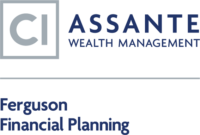Understanding Your Cash Flow for Smart Investing

In the realm of personal finance, cash flow is a term that often surfaces, yet its significance remains underappreciated by many. At its core, cash flow is about understanding how your money moves – where it comes from and where it goes. In this digital age, where transactions are swift and often out of sight, grasping the nuances of your cash flow is more vital than ever. It’s not just about how much you earn, but more importantly, how you manage what you earn. This understanding is crucial, especially when it comes to making informed decisions about investing. By delving into the intricacies of cash flow, this article aims to arm you with the knowledge to not just manage your finances, but to make them work for you, paving the way for sound investment decisions.
The Pulse of Your Financial Health
Cash flow, in the context of personal finance, is essentially the net amount of cash and cash-equivalents being transferred into and out of your life. Think of it as a financial heartbeat, where income is the inflow, pulsing in through salaries, dividends, and other sources. On the flip side, outflows are the expenditures – the rent or mortgage payments, utility bills, groceries, and all other expenses that chip away at your finances.
This concept is pivotal because it tells you a lot about your financial health. Are you living paycheck to paycheck, or are you consistently setting aside a portion of your income? Understanding your cash flow is the first step in financial awareness. It lays the groundwork for efficient budgeting and is instrumental in identifying how much money you can realistically allocate for investments. The better you are at managing your cash flow, the more equipped you are to make savvy investment decisions, ensuring your financial growth and stability.
Challenges in Cash Flow Management
Managing cash flow effectively is often easier said than done. One of the primary challenges lies in the sheer complexity of modern financial life. Multiple income streams, varied expenses, and unforeseen costs can create a financial picture that’s hard to decipher. Additionally, the psychological aspect plays a significant role. The temptation to indulge in immediate gratification, often at the expense of long-term financial stability, can lead to poor cash flow management. Such behavior not only hinders the ability to save and invest but also increases vulnerability to financial emergencies. Furthermore, a lack of financial literacy can leave individuals unsure about how to track and manage their finances effectively, leading to missed opportunities for optimizing cash flow.
Strategies for Effective Cash Flow Management
To navigate the challenges of cash flow management, a strategic approach is essential. The first step is gaining a clear understanding of your income and expenses. This can be achieved through meticulous record-keeping and the use of budgeting tools. You can use something as simple as an Excel-spreadsheet to log your expenses by various categories, or even look at one of many online tracking apps that can categorize and consolidate your transactions across several financial institutions. Whichever way you go, regularly updating and reviewing this financial data helps in identifying spending patterns and areas where expenses can be reduced.
Setting up an emergency fund is another critical strategy, acting as a buffer for unexpected costs without disrupting your regular cash flow. Automating savings can simplify the process of setting aside a portion of your income for investments. And we recommend continuously educating yourself about financial management practices and investment options. This knowledge empowers you to make informed decisions, helping in the optimization of your cash flow for future investments. By adopting these strategies, you lay a solid foundation for financial health and open doors to fruitful investment opportunities.
Leveraging Cash Flow for Investment
Effective cash flow management is not just about maintaining financial stability; it’s about creating opportunities for growth. By having a clear understanding of your cash inflows and outflows, you can identify surplus funds that can be channeled into investments. This surplus, no matter how small, can be the seed for future financial prosperity.
The key is to start with low-risk investments and gradually diversify your portfolio as your financial situation improves. This strategy not only minimizes potential risks but also maximizes the potential for returns. Remember, the goal is to make your money work for you, creating additional income streams that can further improve your cash flow and investment potential.
In summary, mastering cash flow management is a critical step towards achieving your financial goals and making intelligent investment decisions. By understanding and overcoming the challenges in managing cash flow, and employing effective strategies for its optimization, you can position yourself to leverage your financial resources for investment. Remember, managing your cash day-to-day in the short-term is the first step towards your meeting your long-term financial objectives. Making sure you have the cash to invest regularly allows you to take advantage of the time value of your investment and take advantage of compounding opportunities.
We can Help
We work with business professionals, executives, and families to grow and protect their wealth using our Wealth Plan formula. To discuss our approach and if it is the right fit for you, we invite you to schedule a no-obligation discovery consultation.

